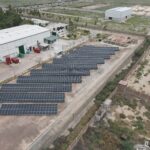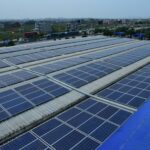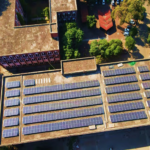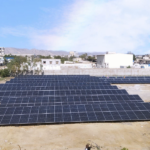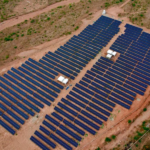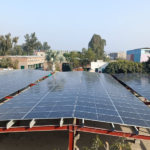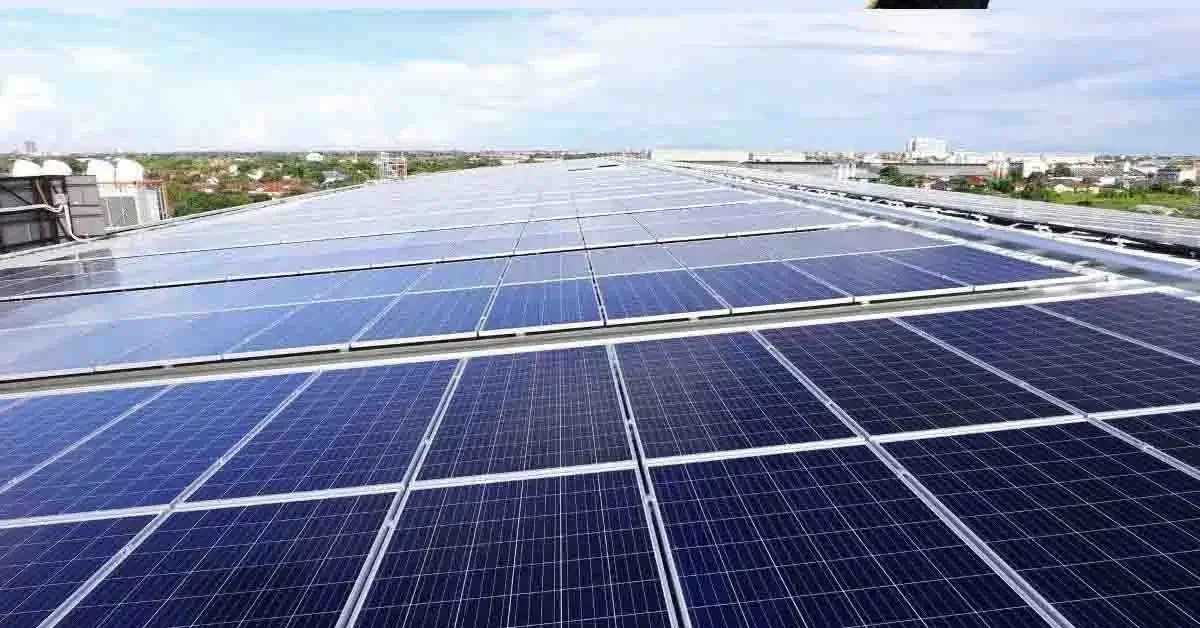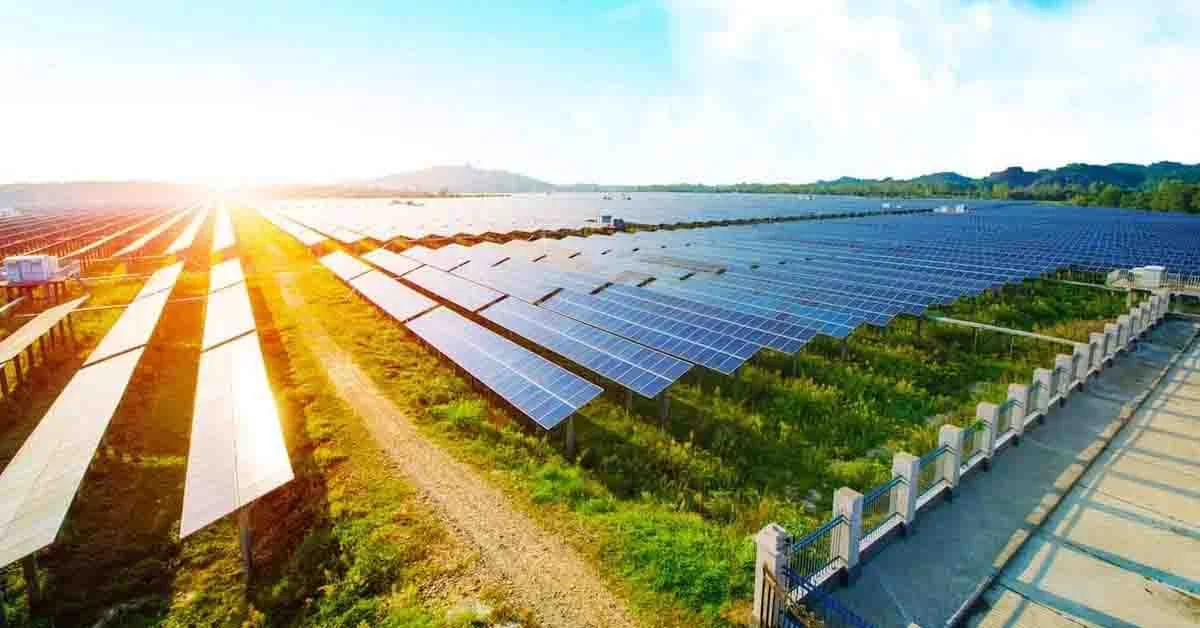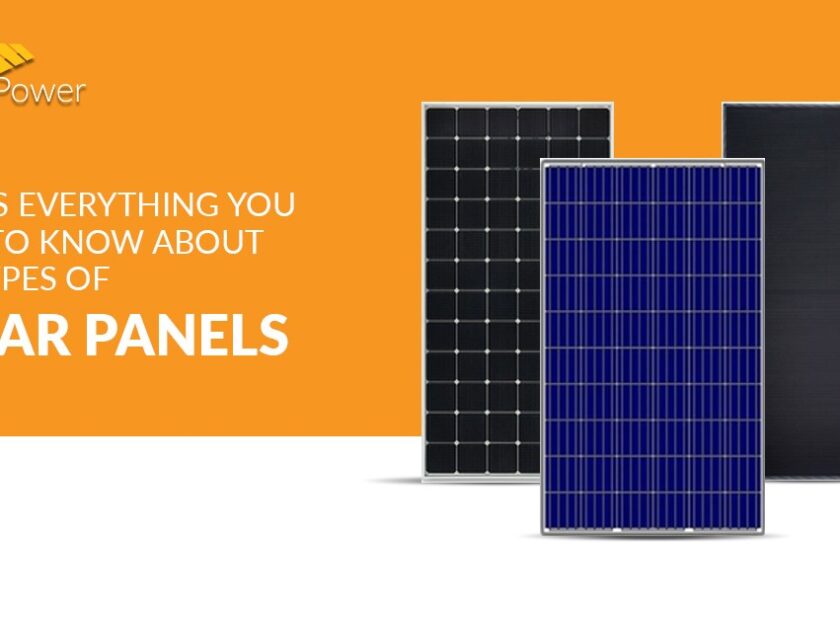Grasping the differences between these solar panels is crucial for making informed choices regarding their use in commercial and industrial environments.
Types of Solar Panels
Monocrystalline Solar Panels
Monocrystalline panels are widely recognized for their exceptional effectiveness and enduring resilience. Made from single-crystal silicon, these panels are characterised by their unique black colour and rounded edges. The high-purity silicon allows them to reach efficiency rates of up to 21.5%. Their superior efficiency makes them perfect for limited spaces, as they produce more power per square meter.
Polycrystalline Solar Panels
Polycrystalline panels are made from melted silicon poured into molds and sliced into square wafers. These panels have a blue, speckled look and are less efficient than monocrystalline panels, generally achieving 13-16%1 efficiency. However, their production process is less wasteful and more economical, making them a popular choice for budget-conscious businesses.
Thin-Film Solar Panels
Thin-film panels stand out from the other types because they are made from various materials such as cadmium telluride (CdTe) and amorphous silicon (a-Si). These panels are created by layering thin coatings of photovoltaic material onto a foundation. Although they are less efficient, with efficiency rates around 15-16%1, their manufacturing process is simpler and more cost-effective. Moreover, thin-film panels are flexible, which makes them well-suited for non-traditional installation applications.
Types of Solar Systems
On-Grid Systems
On-grid solar systems connect directly to the public power grid, enabling users to draw from the grid when their solar energy production falls short. They enable cost savings through net metering, allowing excess energy to be sent back to the grid in exchange for credit. These systems are ideal for urban settings with consistent grid access.
Off-Grid Systems
Off-grid solar systems function independently of the utility grid, providing full energy independence. They are well-suited for remote or rural areas where the grid is not available. These systems often include batteries to store excess power for use during periods without sunlight.
Hybrid Systems
Hybrid solar systems merge solar energy with a link to the power grid. They use solar energy while remaining connected to the grid for additional support when needed. This setup allows users to decrease their dependence on conventional energy sources while having a backup option for times of low solar production.
Choosing the Right Solar Panel
Selecting the appropriate solar panel requires evaluating elements such as your budget, the space you have available, and your specific energy needs. Monocrystalline panels are ideal for those needing high efficiency and have limited space for installation. Polycrystalline panels offer a good compromise between cost and performance, making them ideal for expansive areas where space is not limited. Thin-film panels are perfect for flexible, cost-effective installations.
Future of Solar Panels
Improvements in solar technology are consistently boosting both efficiency and cost-effectiveness. We are your reliable partner for efficient and budget-friendly solar energy solutions. Dedicated to utilising state-of-the-art technology and sustainable practices, we provide a variety of solar energy systems designed to meet the unique needs of our clients. Choosing us means lower energy costs, improved efficiency, and a reduced carbon footprint. At Shams, we prioritise quality and customer satisfaction, ensuring seamless installation and maintenance for a smooth transition to solar energy. Experience the Shams Power difference: Expertise, innovation, and customer-centricity.[/vc_column_text][/vc_column][/vc_row]



